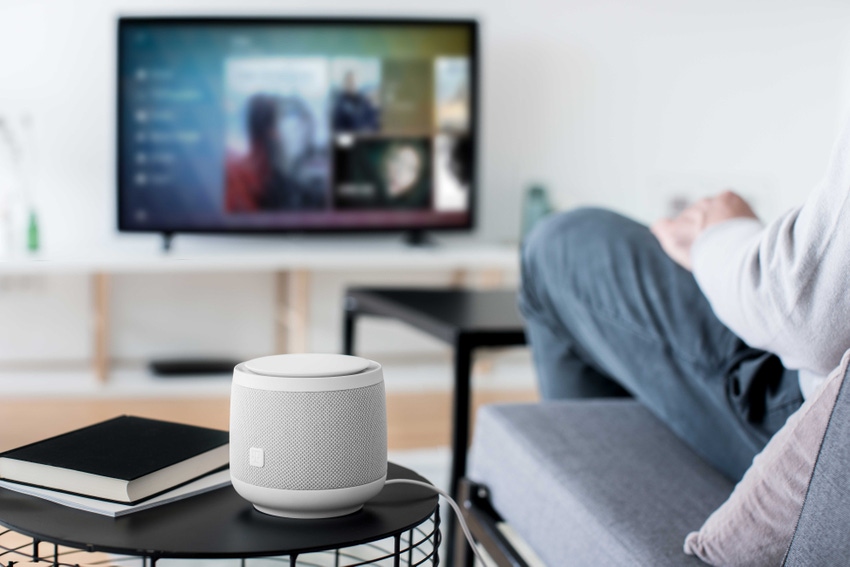Deutsche Telekom has officially entered the smart home race and put a nice little twist on the business model to monetize its greatest asset – a huge customer base.
November 13, 2017

Deutsche Telekom has officially entered the smart home race and put a nice little twist on the business model to monetize its greatest asset – a huge customer base.
With the voice user interface becoming increasingly normalized, the smart home could be a very profitable area. While there isn’t much cash in asking a programme to turn on the lights, monetizing services in the same way Facebook has in social media or Google for its search engines, does promise riches.
Soon enough you’ll be asking your smart home assistant to build you a shopping list, order you a pizza or recommend a movie to watch in the cinema. These recommendations will almost certainly be monetized, perhaps in a similar way promoted/featured listings are on websites today. Or maybe there will be a referral fee for every customer sent instead of more prominent positioning. In any case, the guys developing these assistants will not be doing it for free.
Deutsche Telekom’s approach seems to be slightly different however. The ‘Magenta’ assistant will of course be able to adjust your heating or control your entertainment systems, but it will also link to a number of partners. Tagesschau or radioplayer.de are two local partners which have been mentioned, but users will also be able to access variety of applications already available to Amazon’s voice control tool Alexa.
The speaker itself will be available from 2018 H1 and designed to German data protection standards, meaning data will not be stored for more than 30 days.
Here is the interesting (and perhaps obvious) approach from Deutsche Telekom; why try and take on the technology giants when it can add value by facilitating a relationship with its huge customer base?
It seems to have taken a lesson from the likes of Facebook or AirBnB. An overused phrase is Facebook is the largest content curator without owning any content, and AirBnB is the large accommodation provider without owning any hotels. Deutsche Telekom seems to be doing the same here; it has a massive audience, so why not just charge people to access it.
It might not be the most profitable idea around, but it is a low-risk one which is logical. The telcos are not as good at creating service business models to capitalize on the connected economy as the likes of Amazon and Google, so why not just help them access the customer. It has a relationship with millions of Germans (and other nationalities), so being an independent gatekeeper could work out as a good revenue earner. It will most likely try to capture some of these referral revenues as well, but having two bites won’t hurt anyone.
The telcos also have a track record of subsidized device models. This was one of main drivers to ensure the smartphone penetrated the mass market. Uptake of smart home devices hasn’t really taken the world by storm yet, so this move from DT could also help there as well. We’re just speculating here as DT hasn’t mentioned such an idea, but it could be a reasonable one.
“Operating services via voice-controlled assistants is becoming increasingly important and the time has come for a first product according to German data protection acts,” said Michael Hagspihl, who heads up the consumer business at Telekom Deutschland.
“We’re convinced that voice control is going to become an essential element in the market in the future. All the more reason than to celebrate the fact that we’re now in a position to present such a pioneering quality product together with our partners.”
Assuming the smart home can be monetized through referrals and third-party relationships in the same way social media and online search engines are, the virtual assistant with the biggest audience will make the most money. The telcos have a connection to customers which few other verticals can brag about; who doesn’t have a mobile device nowadays.
Here Deutsche Telekom just seems to be taking a reasonable approach to the smart home; facilitate relationships between its customers and third parties. It’s very logical, very sensible and very German.
About the Author(s)
You May Also Like








.png?width=300&auto=webp&quality=80&disable=upscale)


_1.jpg?width=300&auto=webp&quality=80&disable=upscale)


.png?width=800&auto=webp&quality=80&disable=upscale)